Why "Just a Will" Is Never Enough
Why "Just a Will" Is Never Enough
When you think of estate planning, a Will is usually the first thing that comes to mind. In fact, most people who contact me tell me they don’t need anything complicated for their estate- just a Will. Indeed, Wills have a reputation as the number one estate planning tool and can be seen all over TV shows and movies, from the dramatic “reading of the Will” (which rarely happens in real life) to characters plotting how best to defraud their billionaire uncle’s Will in order to inherit his lavish estate.
But although Wills are a key part of your estate plan - and a big part of the movies - relying on a Will alone won’t solve your estate planning needs - no matter what Hollywood says. Instead, using just a Will to plan your final wishes is likely to leave your loved ones with an expensive mess that won’t distribute your assets in the way you intended.
What’s more, a Will alone won’t ensure that you’re taken care of in the event of incapacity, and contrary to what you might think, relying on only a Will actually guarantees that your family will need to go to court when you die.
If you don’t want to leave your family with a mess if something happens to you, it's important to know how a Will works and when it can be used to benefit you and your family.
What Exactly Is a Will and How Does it Work?
A Will is a written document that directs how the creator of the will wants their possessions disposed of after their death. The creator of the Will is called the testator or testatrix. In your Will you can name someone you trust to manage the distribution of your assets, called your personal representative or executor. You can also write out what you want to have happen to your property, what charitable gifts you want to make, and who will receive them.
A Will can be a complex document or a very simple document. You can even write your Will on a napkin if you really want to!
With that said, a Will isn’t a legally binding document unless it’s executed according to the laws of the state where you reside. In general, you need to sign your will in front of a witness, and sometimes a notary.
Some states have laws that allow you to create a Will that isn’t witnessed at all so long as it is handwritten by the testator themselves. But because every state has different laws for the creation of a Will, it’s important to consult with an experienced estate planning attorney (like me) to create your Will rather than trying to write your own. For instance, in Illinois you need to sign in the presence of two witnesses and a notary and I have several friends and family who paid a national website to create a Will and it wasn’t worth the paper it was written on because the websites instructions weren’t state specific and they didn’t sign it properly, so it didn’t qualify as a valid Will in Illinois.
A Will Requires Probate Court
One of the biggest estate planning myths I hear from clients is that by having a Will, their loved ones won’t need to go to court after they die. I swear, I hear this so often that it is frustrating because a majority of the public is so misinformed about how estate planning really works. It’s sad because after their family members die, they unfortunately learn that the opposite is true.
If you use only a Will as your main method of estate planning, you are guaranteeing that your loved ones will go to court after you die because a Will is required by law to go through the court system called probate before any of your assets can be distributed. In fact, a will is only effective by going through the probate court.
Once your Will is admitted to the court after your death, your personal representative or executor will be given official authority to move your assets under the court’s supervision. This ensures your debts and expenses are paid and only after all court costs, attorneys fees, debts and expenses are paid, then your property is distributed according to your wishes. During the process if any disputes arise over who gets what, the court is there to intervene and play referee.
While court oversight can be helpful if there is any confusion or disagreement about your estate, the probate process is long and expensive. For very small estates the process may take about 9 months, but for most estates, the process can take 12 - 24 months, or even more if a dispute or complications arise.
Due to the length and complexity of the process, going through probate can easily cost your family tens of thousands of dollars. Some states even require that probate cost a certain percentage of your estate’s value.
In addition, because probate is a public court proceeding, your Will becomes part of the public record upon your death, allowing everyone to see everything you own, who your beneficiaries are, and what they’ll receive. Unfortunately, it’s not uncommon for scammers to use this information to try to take advantage of young or vulnerable beneficiaries who just inherited money from you.
A Will Does Not Apply to All of Your Assets
Although movies make it seem like you can and should leave all your property to your loved ones through your Will, a Will only applies to a certain property you own, including any property solely held in your name and any property that doesn’t have a beneficiary designation.
A Will does not cover property co-owned by you with others listed as joint tenants or owned as marital property, meaning you can only give away your share of any property you own with others, not the entire property.
Any assets that have a beneficiary designation, like retirement accounts or life insurance, are not controlled by your Will at all. They will be paid out to the person listed as your beneficiary on each account. That’s why it’s especially important to make sure your account beneficiaries are up to date. I’ve seen far too many horror stories where ex-spouses, estranged friends or family members receive property that had no business depriving their close family and friends of their inheritance.
In addition, you need to understand that a Will has no power until you die, so you can’t use it to give someone you trust the power to make decisions for you if you’re incapacitated due to illness or injury. Even if you named someone in your Will to manage your estate or watch over your children, that person will have no authority to do so while you’re alive.
Don’t Just Get a Will, Get an Estate Plan
With all the issues we’ve discussed surrounding using a Will, you might be wondering why a Will is even used at all. The thing is, you need a Will, but it isn’t the one-and-done solution that most people are led to believe by TV shows and even some lawyers.
Instead, a Will should be used as a piece of your overall estate plan, not as the entire plan itself. And ideally, your Will shouldn’t even need to be used at all.
How can that be? Well, an estate plan isn’t just one or two documents - it’s a range of tools and coordinated planning that makes sure everything you own and everyone you love is taken care of.
Like any home improvement project, you need the right tools to get the result you want. When it comes to estate planning using better tools, like a Trust as your main tool instead of a Will, you can direct what happens to your property, avoid probate entirely and ensure the people you trust can step in and manage your assets immediately if you become incapacitated because of an illness or injury.
In addition, any assets you put in the name of your Trust are entirely private, meaning the court and the public will never know what you own or who will inherit it after you’re gone.
When using a Trust-based estate plan, you’ll still have a Will, but your Will should only need to serve as a backup and safety net to make sure that any assets that are accidentally left out of your Trust at your death are added back into your Trust. That’s why it is called a “Pour Over Will” because everything that is not owned by the trust at your death simply pours back into the trust.
Even more important than having a Will or a Trust, is an up-to-date inventory of your asset, so your family knows what you own, where it is, and how to easily find it when you become incapacitated or die. Without an inventory of your assets, your family will literally be lost when something happens to you. They will spend weeks (or months) and countless hours trying to track down what you own and how to access it, in the process some of your assets may not even be found and end up as unclaimed property turned over to the state. A comprehensive inventory updated throughout your lifetime is a critical, and often overlooked, piece of an estate plan that is not “just a Will.”
If you’re ready to see how having an estate plan for your family is different than having “just a Will,” schedule your Family Wealth & Legacy Planning Session™ today. During our process, we’ll review an inventory of everything you have and everyone you love, and together look at what would happen to your possessions and loved ones when something does happen. Then, I’ll help you develop a plan to make sure your loved ones are taken care of when you can’t be there and help ensure that it is managed properly, so that your plan works for your family exactly as you want it.
Most importantly, I don’t just create documents - I guide you and your family through every step of the process, now and at the time of your passing. I even help all my clients pass on something more valuable than their money - their values, stories, and wisdom - through a Legacy Interview.
To get clear on what you really do need and want for your family, give our office a call to schedule your Family Wealth & Legacy Planning Session™ today.
This article is a service of Family Wealth & Legacy Legal Solutions (FWLLS). We do not just draft documents; we ensure you make educated, informed and empowered decisions for yourself and the people you love. That's why we offer a Family Wealth & Legacy Strategy Session™, during which you will get educated and begin to prepare to avoid life’s most common legal problems and get a plan in place to make the best possible choices for the people you love. You can begin by calling our office today to schedule a Family Wealth & Legacy Strategy Session and mention this article to find out how to get this $750 session at a significantly discounted rate, or even for free.
Contact Us
We will get back to you as soon as possible.
Please try again later.
Contact Us
We will get back to you as soon as possible.
Please try again later.


© 2023 Biederstadt Law. All Rights Reserved.











